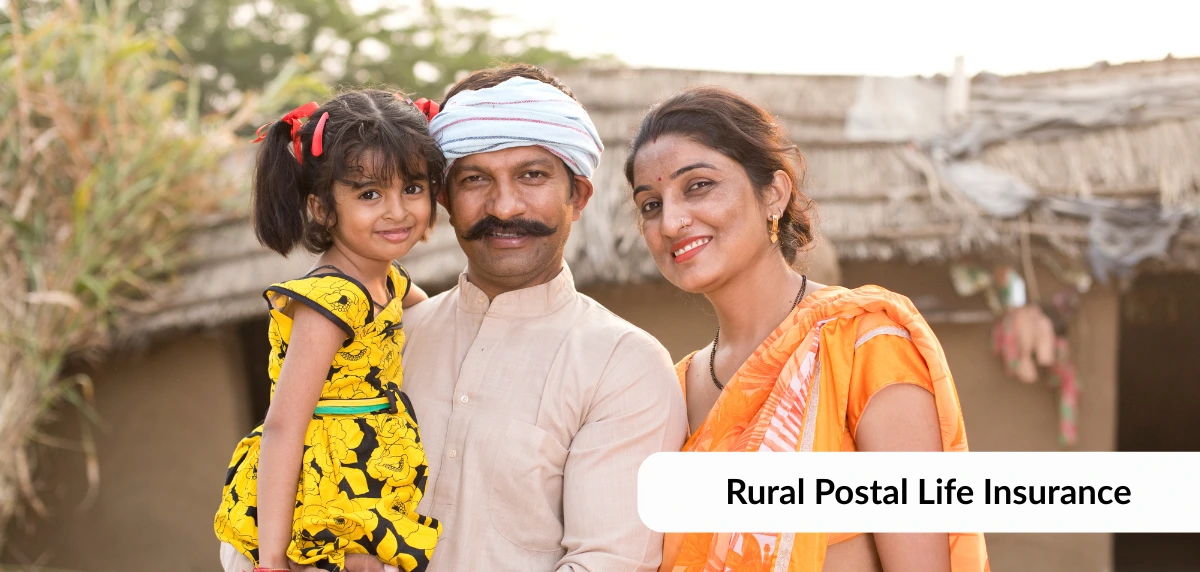Insurance is essential for financial protection, especially in rural areas where access to insurance is often limited. To bridge this gap, the Government of India introduced the Rural Postal Life Insurance (RPLI) scheme. It provides affordable and accessible life coverage to rural citizens, especially the weaker sections and women workers. Let’s understand more about RPLI policies and their types.
What is Rural Postal Life Insurance or RPLI?
Rural Postal Life Insurance (RPLI) was introduced on March 24, 1995, based on the recommendations of the Malhotra Committee. The committee observed that only a small portion of India’s rural population had life insurance coverage. The scheme was launched to expand insurance reach to rural areas through a network that was already extensive in those areas - the postal network.
The postal insurance scheme focuses on low-income groups, women, and underprivileged communities. As of 2017, more than 146 lakh policies have been issued under RPLI. Along with insurance coverage, RPLI policies also offer an opportunity to save and accumulate money on a regular basis. The rural postal life insurance interest rate can differ from policy to policy.
To be eligible, one must be a rural resident who is an Indian citizen and has attained the age of majority.
Types of Rural Postal Life Insurance Policies
RPLI offers six different insurance plans.
Whole Life Assurance (Gram Suraksha)
This policy pays the sum assured plus bonus either on the demise of the policyholder or when they turn 80 (whichever occurs earlier). The RPLI policy details are as follows:
- Entry Age: 19–55 years
- Sum Assured: ₹10,000 to ₹10 lakh
- Loan: Available after 4 years
- Surrender: Allowed after 3 years
- Last declared bonus rate: ₹65 per ₹1,000 per year
Endowment Assurance (Gram Santosh)
This policy offers life cover and savings, with a payout on maturity (based on selected age) or earlier in case of the insured’s demise.
The Gram Santosh RPLI policy details are as follows:
- Entry Age: 19–55 years
- Maturity Age: 35, 40, 45, 50, 55, 58, or 60 years
- Loan: After 3 years
- Interest rate/bonus: ₹50 per ₹1,000 per year
Convertible Whole Life Assurance (Gram Suvidha)
The Gram Suvidha life insurance plan starts as a whole life plan but can be converted into an endowment policy after 5 years on an optional basis.
- Entry Age: 19–45 years
- Loan: After 4 years
- Bonus rate: ₹65 per ₹1,000 annually (if not converted)
Anticipated Endowment Assurance (Gram Sumangal)
A money-back life insurance plan that offers periodic payouts and a lump sum at maturity. It is ideal for people needing liquidity at intervals.
- Entry Age: 19 - 40 years (for a 20-year policy) and 45 years (for a 15-year policy)
- Policy Terms: 15 or 20 years
- Survival Benefits: Paid in stages (20% periodically + 40% on maturity)
- Bonus rate: ₹47 per ₹1,000 annually
Survival benefits paid during the term do not affect the sum assured amount that the nominee will receive on the insured’s demise.
10-Year RPLI (Gram Priya)
This is a short-term money-back policy with payouts that occur every few years and a lump-sum payout at maturity. It is best suited for rural citizens with short savings goals.
- Entry Age: 20–45 years
- Survival Benefits: 20% after 4 & 7 years, 60% + bonus at maturity (10 years).
- Special provision: No interest charged on missed premiums (up to 1 year) during natural disasters
- Last declared bonus: ₹47 per ₹1,000 annually.
Children Policy (Bal Jeevan Bima)
It covers the children of those who hold RPLI policies, with no need for medical tests.
- Eligible Children: Age 5–20 years (maximum two children)
- Parent’s Age Limit: Up to 45 years
- Sum Assured: ₹1 lakh or equal to the parent’s cover, whichever is lower
- No premium after the parent's demise; sum assured paid with bonus at maturity.
The rural postal life insurance interest rate for this policy is the same as that of the Gram Santosh endowment policy (₹50 per ₹1,000 per year).
To sum up, Rural Postal Life Insurance offers an affordable and reliable way to secure life insurance coverage for people living in rural areas. With a variety of RPLI policies and attractive benefits, it can help rural families effectively plan for the future.
























